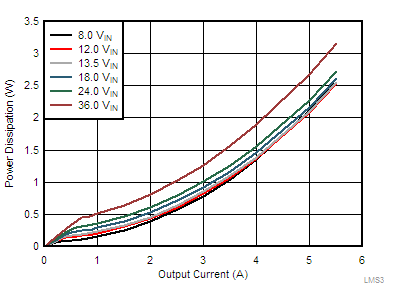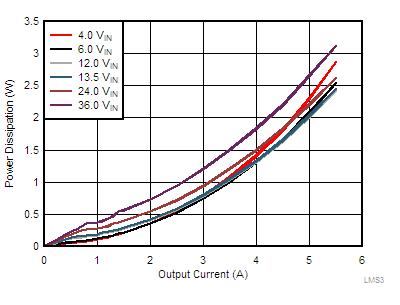ZHCSGY9B July 2017 – March 2018 LMS3655
PRODUCTION DATA.
- 1 特性
- 2 应用
- 3 说明
- 4 修订历史记录
- 5 Device Comparison Table
- 6 Pin Configuration and Functions
- 7 Specifications
- 8 Detailed Description
-
9 Application and Implementation
- 9.1 Application Information
- 9.2
Typical Applications
- 9.2.1 General Application
- 9.2.2 Adjustable 5-V Output
- 9.2.3 Adjustable 3.3-V Output
- 9.2.4 6-V Adjustable Output
- 9.3 Do's and Don't's
- 10Power Supply Recommendations
- 11Layout
- 12器件和文档支持
- 13机械、封装和可订购信息
9.2.1.3 Application Curves
These parameters are not tested and represent typical performance only. Unless otherwise stated, the following conditions apply: VIN = 12 V, TA = 25°C. For the purpose of offering more information to the designer, information for the application with FPWM pin high (FPWM mode) and FPWM pin low (AUTO mode) is included, although the schematic shows the application running specifically in FPWM mode. The mode is specified under each following graph.
 Figure 21. Power Dissipation 5-V Output
Figure 21. Power Dissipation 5-V Output
 Figure 22. Power Dissipation 3.3-V Output
Figure 22. Power Dissipation 3.3-V Output